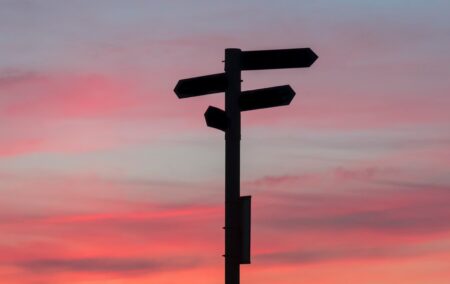On 15 August President Ramaphosa announced that South Africa’s lockdown would move to Level 2 from 17 August (something to keep an eye on is that the state of disaster was extended once again, to 15 September). Amid fanfare that people may once again buy alcohol and cigarettes, and travel intra-provincially – all of which is good news, given that the bar has been so incredibly low this year – South Africans must not forget the widespread damage that has been caused.
One of the harshest lockdowns in the world – marked by irrational, arbitrary regulations and a government that refuses to even acknowledge the existence of ‘transparency’ – is still very much with us. A major lesson people must learn from this whole process is just how crucial economic freedom is.
Writing in Business Times on 16 August, Hilary Joffe observes that the government’s Economic Reconstruction and Recovery Plan, shared with business, labour and community partners at the National Economic Development and Labour Council (Nedlac) forum on 13 August, ‘was disturbingly weak. Not only were the business and labour inputs significantly stronger and more coherent, they had a sense of urgency and crisis that was almost entirely lacking in the government input.’
It should come as absolutely no surprise that government cannot put together a meaningful, radically transformative plan to spur economic growth (if one considers yet more government interventions and controls to be radical, sure, but not radical in the sense that this country needs to urgently implement pro-economic freedom reforms). The government cannot entertain any ingredient of a plan, never mind an overarching strategy, that in any way undermines its control over the economy, and over people’s lives. Those in government continue to enjoy their lavish lifestyles – they do not have to bear the consequences of their decisions to strip away people’s civil liberties and economic freedoms, decisions that have caused more unemployment, poverty, hunger, and hopelessness.
The state is not the saviour
The reform this country needs has to be underpinned by the view that the state is not the saviour and problem-solver that too many have accepted it to be.
In electricity, we must allow as many providers and distributors to enter the market and vie for customers, pushing down prices and innovating in terms of technology. Leave Eskom to die an inevitable death, as any failed company rightly must in a competitive market.
In labour, we should place an indefinite freeze on the National Minimum Wage, a government-imposed artificial hurdle to employment that only dissuades small businesses from hiring. Stop talking about people’s ‘dignity’, while preventing them from engaging in trade, and taking on work they want to try. There is nothing dignified, nothing radical, in a government trying to manage every single aspect of people’s lives.
Hopefully, South Africa’s hard lockdown served as a lesson, an enduring, painful, long-lasting lesson of what happens when a government takes on the task of ‘managing’ and ‘directing’ an economy of over 50 million uniquely individual people. Any government intervention in the economy ensures widespread negative effects. No politician or bureaucrat has the knowledge or the empathy to know how people will act, all the time, or how to treat their thoughts and actions with care.
Perhaps after this whole debacle, South Africans will learn just how destructive it is to entrust a government with so much power. Over many years the government assumed many powers, and with the threat of Covid-19 looming it decided to ‘take charge’. We have to reverse that trend, beginning now.
Ever-growing government reach
The country entered the pandemic with more than 10 million people unemployed. The unofficial employment rate is probably hitting 42%, given the restrictions on the alcohol industry, and all those industries and jobs with which it is intertwined. Ever-growing government reach into our lives was the norm before Covid-19. We should not merely ‘return’ to that normal. If the country is to ever see 5-10% GDP growth, radical structural reforms are needed, and for that this government must either step back, or be swept aside.
South Africa’s ‘new normal’ will only be typified by regression and increasing poverty if we continue down the pre-pandemic path of growing government, and shrinking individual liberty.
Economic reality
All the government promises in the world cannot change economic reality. People cannot (and morally, must not) be expected to ‘live off’ welfare for their entire lives. The myriad pressures on the fiscus have been shown and explained numerous times. The crucial thing people need to understand is that the government cannot redistribute the economy back into good health. Without a robust, healthy private sector, this country will not experience meaningful job creation.
Further, without the necessary real economic growth, tax revenue will always decline, and those South Africans who really need government assistance will be denied even that.
The only path that will radically transform South Africa for the better is the path that drastically cuts back government controls, and allows the individual freedom to trade, build, invest, and succeed.
[Picture: Javier Allegue Barros on Unsplash]
The views of the writer are not necessarily the views of the Daily Friend or the IRR
If you like what you have just read, subscribe to the Daily Friend

